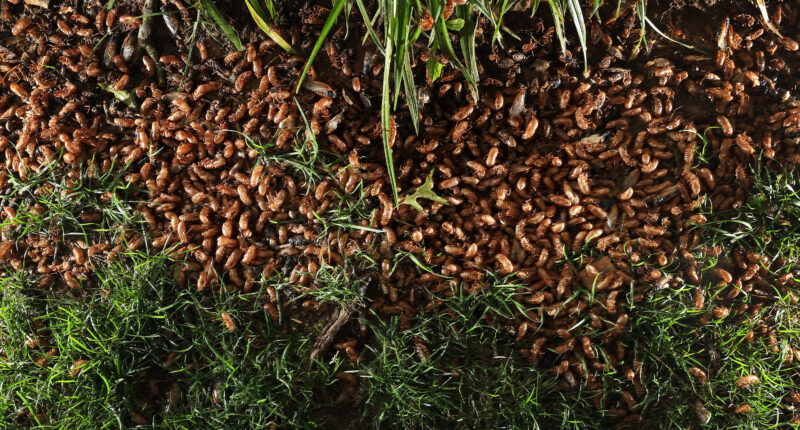BILLIONS of sex-crazed insects will fly across the country this summer after lying dormant for 17 years.
The eerie insects are now plagued with a zombie-esque fungus similar to that in The Last of Us, a popular video game turned hit TV show.



This summer, the Brood XIV class cicadas will begin feeding on tree sap across the United States.
The cicadas have lain dormant for nearly two decades.
During their four- to six-week life span above ground, they are expected to search for mates and reproduce, USA Today reported.
According to evolutionary biologist John Cooley from the University of Connecticut, nature’s mysteries surpass even the wildest science fiction stories. This extraordinary phenomenon was likened to something not even science fiction has imagined.
The red-eyed cicadas will begin rising from the ground after the temperature averages over 64 degrees Fahrenheit.
Professor Gene Kritsky from Mount St. Joseph University in Cincinnati explained that the emergence of the majority of cicadas takes approximately two weeks. This prolonged period marks the time when a vast number of cicadas appear.
“Once they start coming out at a specific location, that starts the clock.
“You’ll have cicadas at that location for the next six weeks.”
After mating, the female insect will deposit eggs so the cycle can repeat in 2042.
The insects, who buzz so loudly that police have been called on them, are already beginning their ascent.
Cicadas have already been reported in North Carolina, Tennessee, Kentucky, Virginia, Ohio, New Jersey, Georgia, and Maryland.
The loud buzz is actually a mating song sung by the male cicadas to attract the females.
This year, the buzzes will be even louder as the 17-year cicadas have been plagued by a fungus called Massospora cicadina.
Massospora increases the insects’ sex drive and turns them into “zombies,” according to the New York Post.
The genital-destroying disease causes the spores to replace the cicadas’ genitalia with fungus.
Once the insect is infected, it flaps its wings like a female cicada, luring healthy males to mate with it.
Where will the cicadas be seen this summer
- Georgia
- Kentucky
- Indiana
- Massachusetts
- North Carolina
- New Jersey
- New York
- Ohio
- Pennsylvania
- Tennessee
- Virginia
- West Virginia
After the males try to mate with the infected insect, they will also become infected and spread the fungus.
Floyd Shockley, an entomologist and collections manager at the Smithsonian, illustrated that the cicadas spread a fungus that affects both male and female cicadas. These insects are unknowingly influenced to spread the fungus, ceaselessly working until they are ultimately overtaken by the fungus and meet their demise.
“It’s sex, drugs and zombies,” Cooley said.
Luckily, humans have nothing to fear from cicadas.
While their buzz may be annoying, they won’t bite or sting anyone.

















